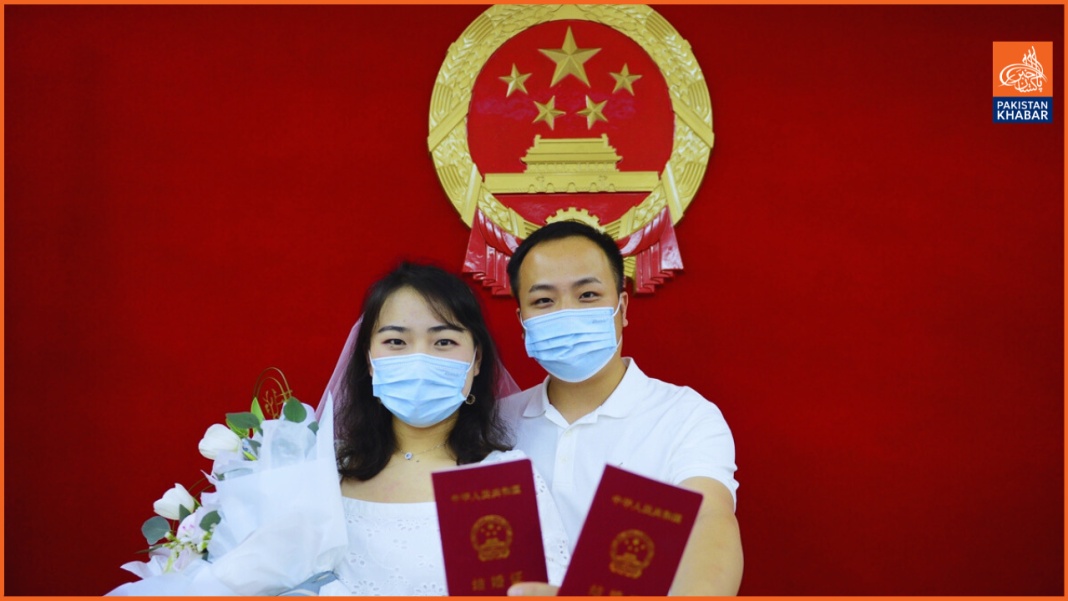Luliang, a city in Shanxi province, is one of several Chinese cities that has instituted financial incentives for marriage and having children in an effort to reverse the country’s dwindling population. Participants in the initiative, which sought to increase the number of marriages in China, included Zhang Gang and Weng Linbin, who each received 1,500 yuan (about $205 USD).
Marriage rates in China fell 20% from 2023 to 2018, prompting the government to take this measure. Although Zhang and Weng were able to postpone their wedding in order to take advantage of the benefit, many young people still feel uneasy about getting married or starting a family because of the high costs of school, childcare, and the labour market.
In addition to financial incentives for marriage, Luliang provides a monetary bonus for each registered child: 2,000 yuan for the first, 5,000 for the second, and 8,000 for the third. Matchmaker Feng Yuping and others in the know contend that cultural and societal obstacles, such as men’s unwillingness to wed women with advanced degrees, continue to exist even after these reforms.
Similar incentives are being introduced nationwide in China to address the problem of an ageing population. As an example, the city of Tianmen in the province of Hubei allegedly halted the decline in birth rates due to its generous subsidies for families with three children. But experts say that if we want lasting changes, we need to tackle fundamental problems like economic instability and gender stereotypes.




